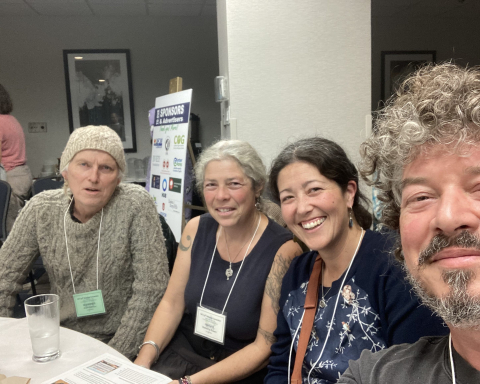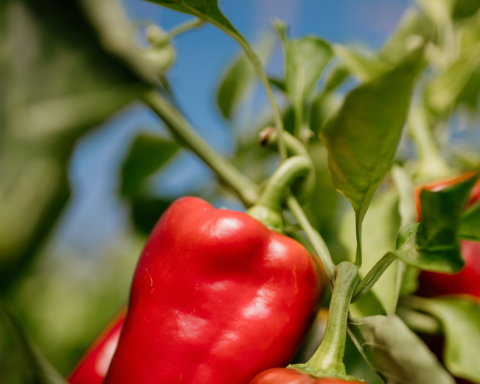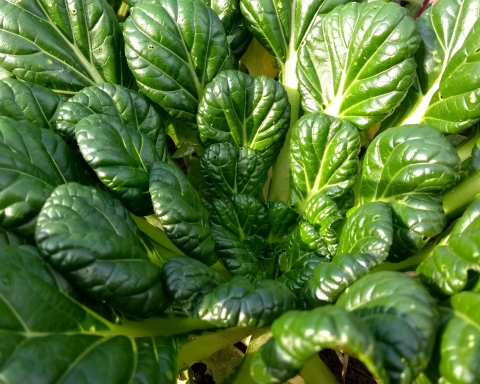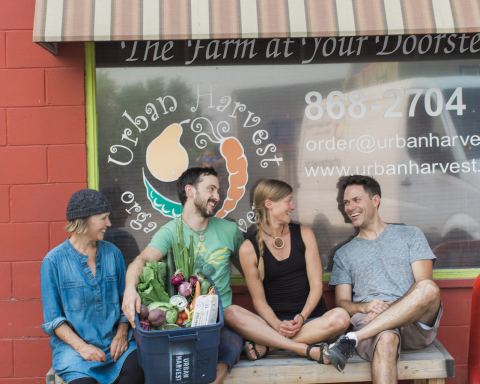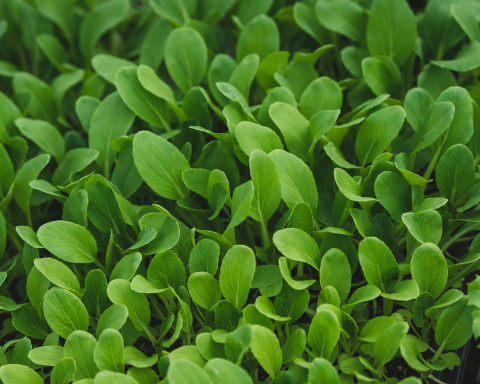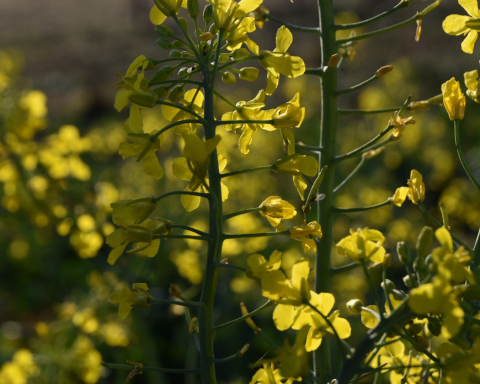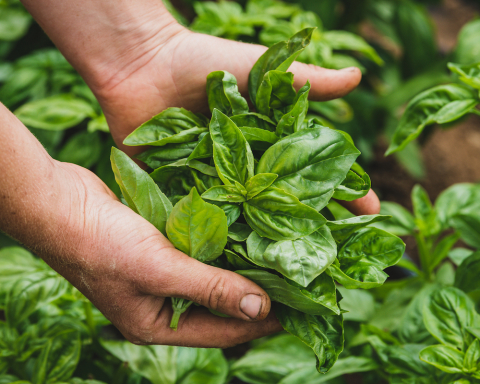Anne Macey
Originally published in The Canadian Organic Grower, Spring 2018, and updated by the author in May 2020, with thanks.
The International Federation of Organic Agriculture Movements (IFOAM) has established its Principles of Organic Agriculture. Within those, IFOAM includes a Principle of Fairness, which states “Organic agriculture should be built on relationships that ensure fairness with regard to the common environment and life opportunities.” The IFOAM text elaborates further, saying this principle “emphasizes that those involved in organic agriculture should conduct human relationships in a manner that ensures fairness at all levels and to all parties—farmers, workers, processors, distributors, traders, and consumers.”

Many of us have always thought of organic agriculture as a food system that includes social values, yet nothing in our standards speaks to social issues. The focus is very much on agronomic practices and permitted substances. Animal welfare is addressed, but when it comes to people and relationships, North Americans have resisted any suggestion that social justice standards are needed. The argument is that those kinds of standards are written for the global South where exploitation of the work force and poor working conditions are more common. The US and Canada have labour laws to protect farm workers.
I am not so sure, and in any case, fairness in the food system is about much more than treatment of farm workers. Fairness and basic rights include fair trade, fair pricing for the farmer, and fair access to land and seeds. It means fair wages for workers, decent farmworker housing, and more. I agree that incorporating social issues into standards could be problematic, but it is time we had a serious discussion about whether they are needed—and, if not, whether there is an alternative approach. How we can create trust and demonstrate that organic farmers respect their workers as much as the critters in the soil? How can we ensure farmers get a fair price for the quality food they produce?
Colleagues in the US (Michael Sligh, Elizabeth Henderson, and others) worked on these issues with the Agricultural Justice Project (see sidebar on Social Standards in Food Production), developing social stewardship standards for fair and just treatment of people who work in organic and sustainable agriculture. These standards currently fall into the realm of “beyond organic” with the stated purpose:
- To allow everyone involved in organic and sustainable production and processing a quality of life that meets their basic needs and allows an adequate return and satisfaction from their work, including a safe working environment.
- To progress toward an entire production, processing and distribution chain that is both socially just and ecologically responsible.1
Here in Canada, two things got me thinking more about the need to introduce something on the topic of fairness in the Canadian Standard. The first was hearing about the poor housing with no potable water for migrant workers on a fruit farm in the Okanagan (not an organic farm), despite laws being in place to protect those workers.
The second is the debate about farm interns and apprentice rights on organic farms. With high labour requirements, many organic farms depend on WWOOFers and other short-term interns for their work force. But sometimes the relationship sours and the workers end up feeling exploited. While many farmers commit to providing a rich and rewarding experience for their interns, in other cases conditions are less than ideal. An intern’s expectation will likely include learning what it takes to become a farmer, not just how to weed carrots.
Maybe we don’t need to spell out lots of specific requirements in the standards, but we could at least make some principled statements about the need for organic agriculture to provide fair working and living conditions for farmers and their workers, whatever their status. For years this type of approach was used in the livestock standards, without the need to spell out exactly what was needed for compliance. We only articulated more specific rules when consumers became unsure about the ability of organic agriculture to address animal welfare issues and started looking for other labels. We could also include statements about fair prices and financial returns for farmers or buyers’ rights to a good quality product.
Unfortunately, since writing this article not much has changed. To bring the discussion to the table, I made some proposals for the 2018 standards revision process. The Organic Technical Committee set up a task force on the topic but no agreement was reached, although it might end up as an informative appendix to facilitate the review in 2025. In the meantime, following a discussion at the 2020 COABC conference we wondered if COABC should conduct a pilot project which, if successful, could be brought forward to the 2025 standards review. Perhaps a first step might be for organic operators to have a “letter of agreement” or similar in the first language of their employees and interns committing the operator to uphold the principles of social fairness regardless of any other formal labour contract that might exist.
The conversation continues.
Social Standards in Food Production
Domestic Fair Trade: The Agricultural Justice Project is a member of the Domestic Fair Trade Association along with a wide range of farmworker and farmer groups, retailers, processors and NGOs from across North America. These groups are united in their mission to promote and protect the integrity of domestic fair trade.
Farmer Direct Co-op, a 100% farmer-owned, organic co-op based in Saskatchewan, was a leader in domestic fair trade, as the first business in North America to earn that certification. Its membership includes more than 60 family farms producing organic small grains and pulse crops in the Prairie region.
Domestic fair-trade certification is based on a set of 16 principles, encompassing health, justice, and sustainability:
- Family scale farming
- Capacity building for producers and workers
- Democratic and participatory ownership and control
- Rights of labor
- Equality and opportunity
- Direct trade
- Fair and stable pricing
- Shared risk & affordable credit
- Long-term trade relationships
- Sustainable agriculture
- Appropriate technology
- Indigenous Peoples’ rights
- Transparency & accountability
- Education & advocacy
- Responsible certification and marketing
- Animal welfare
Source: Domestic Fair Trade Association
Aquaculture: The Aquaculture Stewardship Council (ASC) includes social requirements in its standards certifying responsibly farmed seafood. “ASC certification imposes strict requirements based on the core principles of the International Labour Organisation (ILO), these include prohibiting the use of child labour or any form of forced labour. All ASC certified farms are safe and equitable working environments where employees earn a decent wage and have regulated working hours. Regular consultation with surrounding communities about potential social impacts from the farm and proper processing of complaints are also required by certified farms.”
Source: Aquaculture Stewardship Council
Anne Macey is a long-time advocate for organic agriculture at local, provincial, national and international levels. She has served on the CGSB technical committee on organic agriculture, the ECOA Animal Welfare Task Force, the COABC Accreditation Board and on the Accreditation Committee for the International Organic Accreditation Service, as well as her local COG chapter. She is a writer/editor of COG’s Organic Livestock Handbook, a retired sheep farmer, and a past president of COG.
References:
1. Agricultural Justice Project. 2012. Social Stewardship Standards in Organic and Sustainable Agriculture: Standards Document. agriculturaljusticeproject.org/media/uploads/2016/08/02/AJP_Standards_Document_9412.pdf



